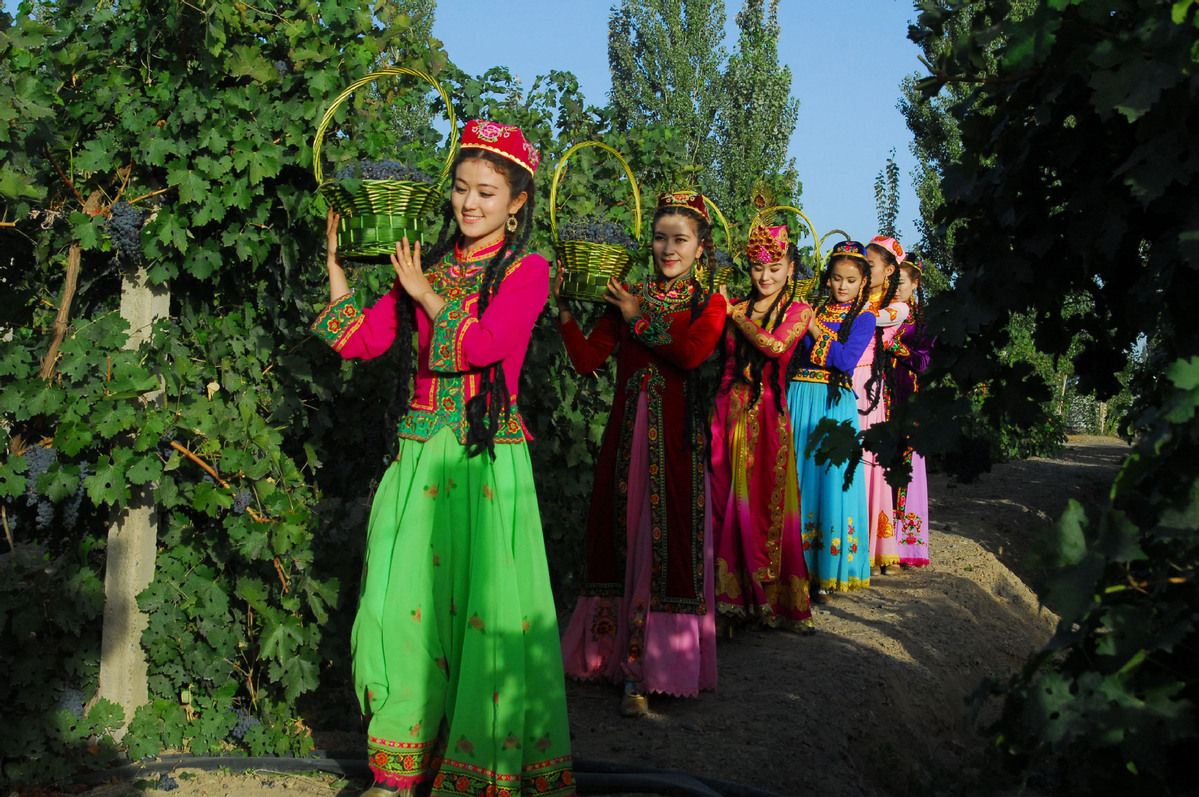Exhibit shows progress of human rights in Xinjiang
The exhibit, sponsored by China's mission to the UN Geneva Office and the China Society for Human Rights Studies, was held during the 40th session of the UN Human Rights Council at the Palace of the Nations, home of the UN Geneva Office.
Romain Perez, a member of the secretariat of the United Nations Conference on Trade and Development, was taking a break on Friday morning when he stopped in a hall of the UN Geneva Office to see an exhibition about human rights development and other progress in China's Xinjiang Uygur autonomous region.

Women dressed in colorful outfits perform at the 27th Silk Road Turpan Grape Festival in Turpan, Northwest China's Xinjiang Uygur autonomous region, Sept 3, 2018. [Photo provided to chinadaily.com.cn]
The 84 photos on display covered a wide range of subjects-from people's daily lives, cultural diversity, freedom of religion and ethnic unity to grassroots democracy, economic modernization and infrastructure upgrades.
Perez was absorbed by several photos of bullet trains, livestock and manufacturing.
"It seems to be very modern. I saw a lot of installations, and I'm very impressed. There is a lot of development," said Perez, a Frenchman who visited Shanghai in 2001, but not Xinjiang. "China is changing quickly."
Brahim Laghzal, a Moroccan, has worked at the UN Geneva Office for eight years. He has not been to China but said he knows that today it's very different from decades ago. He said people from Asia to Africa to the Americas need to exchange their experiences on human rights.
The exhibit, sponsored by China's mission to the UN Geneva Office and the China Society for Human Rights Studies, was held during the 40th session of the UN Human Rights Council at the Palace of the Nations, home of the UN Geneva Office.
Tuerxun Wujiahamaiti, 41, head of the College of Xinjiang Uyghur Medicine in Hotan, Xinjiang, described himself as the best example of how human rights have advanced in Xinjiang. He said on Friday that the development of Xinjiang has provided everyone with opportunity, lifting him from poor beginnings to become the head of a medical college.
Wujiahamaiti credited the improved situation of security and stability in Xinjiang for the booming night market, tourism and the fact that many high-tech companies have come to the region in recent years.
"The exhibition shows amazing progress by the people of Xinjiang," Nikita Zhukov, deputy permanent representative of the Russian Federation to the UN Geneva Office, wrote in the guestbook after visiting the exhibit on the opening day.

